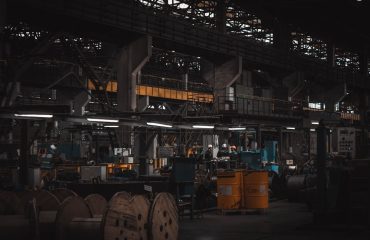Superalloy steels are a class of high-performance materials renowned for their exceptional strength, resistance to high temperatures, and excellent corrosion resistance. These remarkable properties make them indispensable in a wide range of demanding applications, pushing the boundaries of engineering and technology. This blog post delves into the fascinating world of superalloy steels, exploring their key characteristics and diverse applications across various industries.
1. Aerospace: Reaching for the Skies with Superalloy Strength
The aerospace industry is arguably the most significant user of superalloys. The extreme conditions encountered during flight – high temperatures from friction and combustion, intense pressures, and corrosive environments – demand materials that can withstand immense stress. Superalloys, particularly nickel-based superalloys, are perfectly suited for these challenges. They form the critical components of gas turbine engines, including turbine blades, vanes, and combustor liners. These components operate at temperatures exceeding 1000°C (1832°F), requiring materials with exceptional creep resistance (resistance to deformation under sustained stress) and fatigue strength (resistance to failure under repeated stress). The superior performance of superalloys allows for increased engine efficiency, higher thrust, and reduced fuel consumption, leading to significant advancements in aircraft design and performance.
2. Energy Sector: Powering the Future with Superalloy Resilience
The energy sector, encompassing power generation and oil and gas extraction, relies heavily on superalloys for their ability to withstand harsh operating conditions. In power plants, superalloys are crucial components of gas turbines used for electricity generation. Their high-temperature strength and corrosion resistance ensure prolonged operational life and efficient energy conversion. Furthermore, superalloys are used in the construction of components for oil and gas extraction, such as downhole tools and piping systems, which operate under high pressure and temperature conditions. The ability of superalloys to withstand these extreme conditions ensures the safe and efficient extraction of valuable resources.
3. Chemical Processing: Withstanding Corrosive Environments
The chemical processing industry deals with highly corrosive substances and demanding temperatures. Superalloys, particularly those with enhanced corrosion resistance, play a crucial role in handling these challenging conditions. They are used in the construction of reactors, pumps, valves, and other components that come into contact with aggressive chemicals. The superior resistance to oxidation, sulfidation, and other forms of corrosion ensures the longevity and reliability of these components, minimizing downtime and maximizing productivity. Specific alloy compositions are tailored to meet the unique demands of different chemical processes.
4. Automotive Industry: Enhancing Performance and Efficiency
While not as prevalent as in aerospace or energy, superalloys are finding increasing applications in the automotive industry, particularly in high-performance vehicles. Their use in turbocharger components, exhaust systems, and other high-temperature applications enhances engine efficiency and performance. The lighter weight of some superalloys compared to traditional materials also contributes to improved fuel economy. As the demand for more efficient and powerful engines grows, the use of superalloys in the automotive sector is expected to increase.
5. Medical Implants: Biocompatibility and Strength in a Delicate Balance
Surprisingly, superalloys also find application in the medical field. Certain nickel-based superalloys exhibit excellent biocompatibility, making them suitable for use in medical implants. Their high strength and corrosion resistance are essential for the long-term functionality and reliability of these implants. However, careful selection of alloy composition is crucial to minimize the risk of adverse reactions. Research continues to explore the potential of superalloys in developing advanced medical implants with enhanced performance and biocompatibility.
In conclusion, superalloy steels are high-performance materials with a wide range of applications across diverse industries. Their unique combination of strength, high-temperature resistance, and corrosion resistance makes them indispensable in demanding environments. As technology advances, the development of new superalloy compositions and processing techniques promises to further expand their applications and enhance their performance, driving innovation and progress across various sectors.
SEO-Friendly Tags:
- Superalloy Steel
- High Temperature Alloys
- Aerospace Materials
- Nickel-Based Superalloys
- Energy Applications




